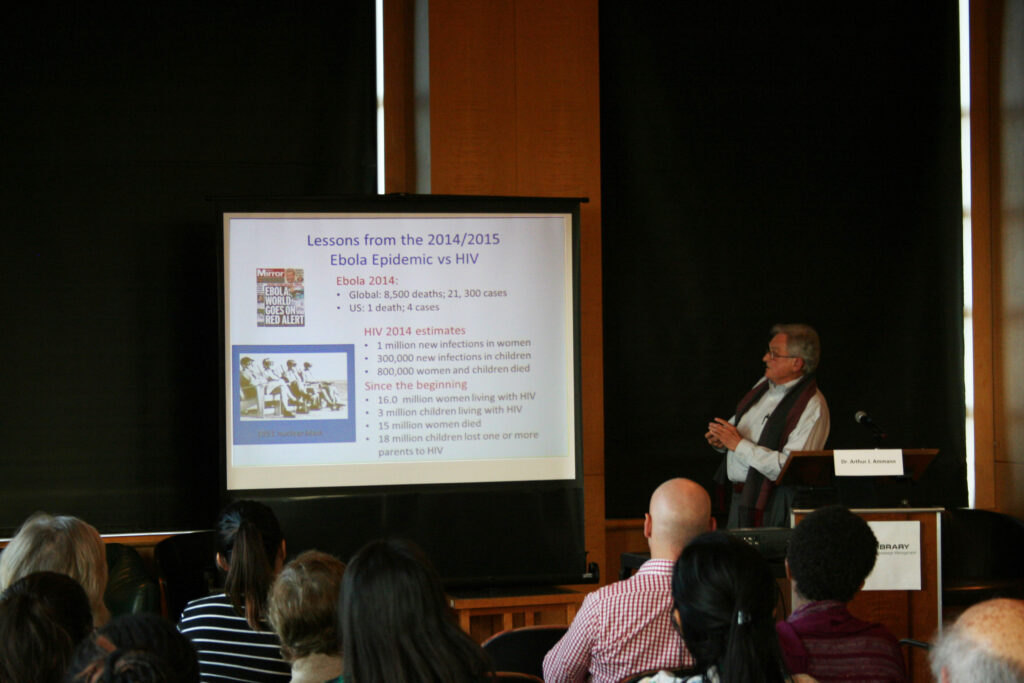The lecture The Forgotten Epidemic: HIV/AIDS in Women and Children given by Dr. Arthur Ammann in the UCSF Library on February 26th is now available free online.
Beginning in 1981 researchers at UCSF defined some of the most important features of the emerging AIDS epidemic – the cause of AIDS, the clinical features of AIDS, populations at risk for HIV infection, methods to prevent and treat HIV, and discovery of HIV. Working closely with community activists, advocates, scientists and policy makers, UCSF distinguished itself as a model of successful collaboration. The first discovery of AIDS in infants and children and blood transfusion associated AIDS at UCSF were instrumental in defining the extent of the epidemic. The scientific advances in HIV/AIDS that occurred over the next two decades were remarkable resulting in the near eradication of HIV in infants in the US and transforming an acute and fatal infection in adults to a chronic and manageable one. But even as these advances occurred benefiting many millions of people worldwide, women and children were too often excluded, resulting in a global epidemic that is now composed of over 50% women and children and a secondary epidemic of AIDS-related orphans that numbers in the tens of millions.
Please use this link to view Dr. Ammann’s presentation in full.
About the UCSF Archives & Special Collections Lecture Series
UCSF Archives & Special Collections launched this lecture series to introduce a wider community to treasures and collections from its holdings, to provide an opportunity for researchers to discuss how they use this material, and to celebrate clinicians, scientists, and health care professionals who donated their papers to the archives.

